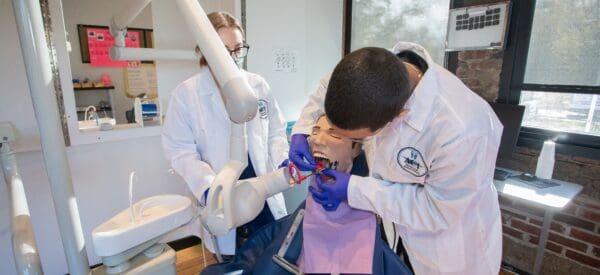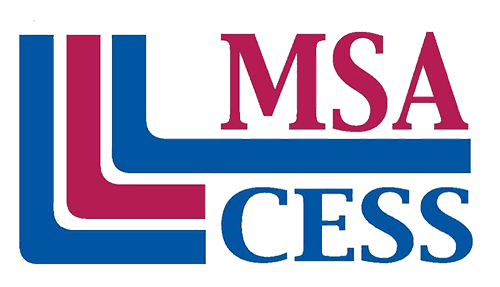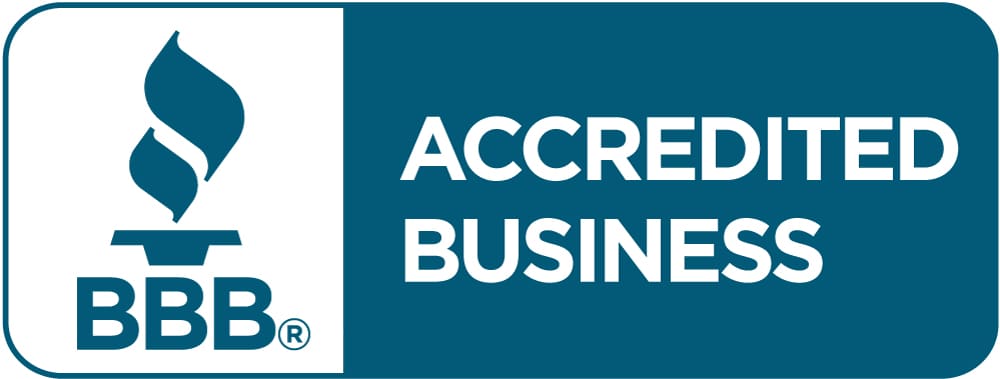Pursuing a career in healthcare is a smart choice if you’re looking to positively impact people’s lives while enjoying solid pay and benefits.
When people hear “healthcare jobs,” they often assume advanced degrees are a must. But in reality, there are plenty of roles in the medical field that don’t require you to get a college degree at all. Many entry-level positions just require a high school diploma or GED, and preferably certification from an accredited program.
In this post, we’ll look at a few jobs in the medical & dental fields that don’t require a four-year degree.
5 Healthcare Jobs That Don’t Require a College Degree
If you are not interested in investing several years and thousands of dollars in college, there are still plenty of healthcare careers worth considering. These jobs are also great if you’re currently in school or need work during a gap year before medical school. They also offer hands-on experience that can help if you advance in the medical field. Plus, these jobs tend to come with lower stress than higher-level medical roles.
1. Medical Assistant
A Medical Assistant supports physicians and nurses by performing hands-on patient care tasks. They play a key role in keeping a medical office or clinic running smoothly. Medical Assistants work closely with patients and help ensure a high level of care and comfort during visits. While they don’t diagnose or treat, their support is essential to the daily operations of healthcare settings. Some MAs also handle certain administrative tasks depending on the workplace.
- Job Outlook: 15% growth by 2033 (BLS)
- Median Salary in New Jersey: $42,000/year (ZipRecruiter)
- Key Responsibilities:
- Taking vital signs.
- Preparing patients for exams.
- Phlebotomy & EKG duties.
- Administering injections.
- Assisting with minor procedures.
2. Phlebotomist
Phlebotomists are trained healthcare professionals who draw blood from patients for tests, transfusions, donations, or research. They ensure proper labeling and handling of samples while maintaining a calm and reassuring presence for patients who may be nervous or uncomfortable. Phlebotomists play a crucial role in diagnostics and patient care by collecting accurate specimens needed for medical evaluation. They often work in hospitals, laboratories, or blood donation centers.
- Job Outlook: 8% growth by 2033 (BLS)
- Median Salary in New Jersey: $42,696/year (ZipRecruiter)
- Key Responsibilities:
- Collecting blood samples from patients.
- Properly labeling vials for processing.
- Following infection control and safety procedures.
- Calming patients and explaining blood-drawing procedures.
- Processing specimens for laboratory analysis.
3. EKG Technician
EKG Technicians perform electrocardiograms to monitor and record the electrical activity of a patient’s heart. They attach electrodes to the patient’s chest, arms, and legs, then operate specialized equipment to capture the results. These tests help doctors diagnose heart conditions such as arrhythmias or heart disease. EKG Techs work in hospitals, cardiology offices, or diagnostic labs and must be detail-oriented to ensure accurate readings.
- Job Outlook: 11% growth by 2033 (BLS)
- Median Salary in New Jersey: $50,481/year (ZipRecruiter)
- Key Responsibilities:
- Operating EKG machines to perform tests.
- Placing electrodes on patients in the correct positions.
- Monitoring and interpreting EKG readouts.
- Identifying normal and abnormal EKG patterns.
- Ensuring the proper functioning and maintenance of equipment.
4. Patient Care Technician
Patient Care Technicians (PCTs) provide direct care to patients in hospitals, nursing homes, and long-term care facilities. They assist with basic tasks such as bathing, feeding, repositioning, and monitoring vital signs. PCTs may also draw blood or perform EKGs depending on their training. Working under the supervision of nurses, they offer essential hands-on support that improves patients’ comfort and well-being.
- Job Outlook: 4% growth by 2033 (BLS)
- Median Salary in New Jersey: $39,062/year (ZipRecruiter)
- Key Responsibilities:
- Helps patients with daily activities like bathing, dressing, and eating.
- Measures and records vital signs.
- Assists with medical tasks like drawing blood or performing EKGs.
- Monitors patients and reports changes in condition.
- Transports patients and helps them move safely around the facility.
5. Dental Assistant
Dental Assistants help dentists during procedures by handing them instruments, suctioning, and preparing materials. They also take and develop X-rays, sterilize equipment, and ensure patients are comfortable before and during treatments. While some administrative work may be involved, clinical tasks make up a significant part of the job. Dental Assistants are a key part of the dental team, helping ensure smooth and efficient patient care.
- Job Outlook: 8% growth by 2033 (BLS)
- Median Salary in New Jersey: $48,578/year (ZipRecruiter)
- Key Responsibilities:
- Assisting the dentist with intra-oral dental procedures.
- Communicating with patients.
- Processing and sterilizing dental instruments and equipment, tray set-ups.
- Radiological tasks such as exposing and processing x-rays.
- Helping to manage the front office of the dental practice.
Get Certified For An In-Demand Healthcare Job
If you feel that one of these in-demand careers is right for you, contact ACI Medical & Dental School today. By completing one of our certification programs, students will be equipped with the skills and knowledge to start working in the healthcare field in just four months.
Classes are starting soon! To learn more about this exciting new career opportunity and take the next step towards an in demand job in a growing industry, contact us today.








